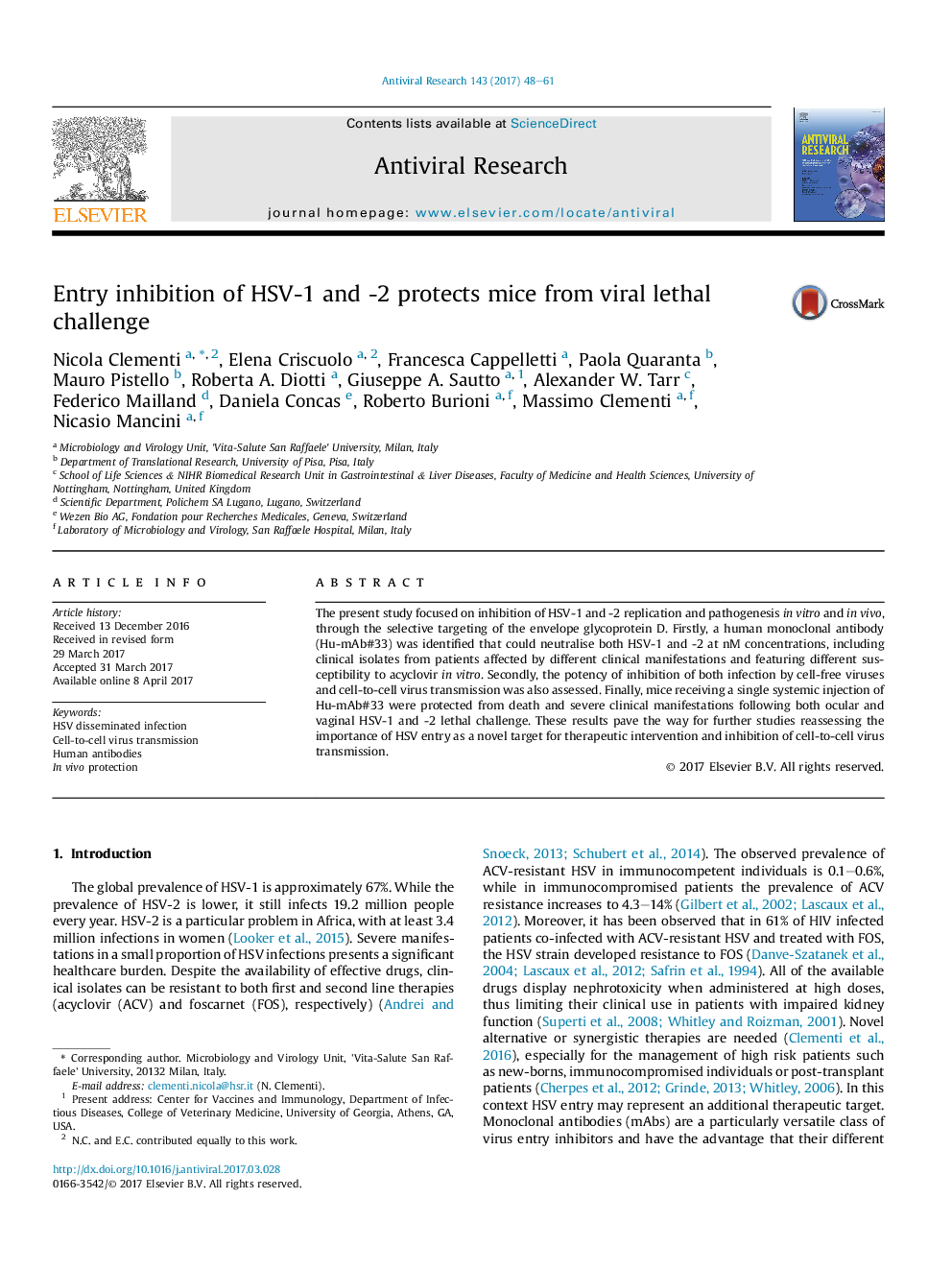| کد مقاله | کد نشریه | سال انتشار | مقاله انگلیسی | نسخه تمام متن |
|---|---|---|---|---|
| 5551763 | 1557800 | 2017 | 14 صفحه PDF | دانلود رایگان |

- HSV-1 and -2 cross-protection is conferred in vivo by a single post-infection systemic administration of a human anti-gD mAb.
- Inhibition of HSV entry by this mAb also results in inhibition of cell-to-cell virus transmission.
- Different molecular formats (Fab, scFv and IgG) of Hu-mAb#33 exert different anti-viral activity.
- HSV-1 and -2 clinical isolates are more sensitive to mAb#33 activity compared to reference virus laboratory strains.
The present study focused on inhibition of HSV-1 and -2 replication and pathogenesis in vitro and in vivo, through the selective targeting of the envelope glycoprotein D. Firstly, a human monoclonal antibody (Hu-mAb#33) was identified that could neutralise both HSV-1 and -2 at nM concentrations, including clinical isolates from patients affected by different clinical manifestations and featuring different susceptibility to acyclovir in vitro. Secondly, the potency of inhibition of both infection by cell-free viruses and cell-to-cell virus transmission was also assessed. Finally, mice receiving a single systemic injection of Hu-mAb#33 were protected from death and severe clinical manifestations following both ocular and vaginal HSV-1 and -2 lethal challenge. These results pave the way for further studies reassessing the importance of HSV entry as a novel target for therapeutic intervention and inhibition of cell-to-cell virus transmission.
Journal: Antiviral Research - Volume 143, July 2017, Pages 48-61